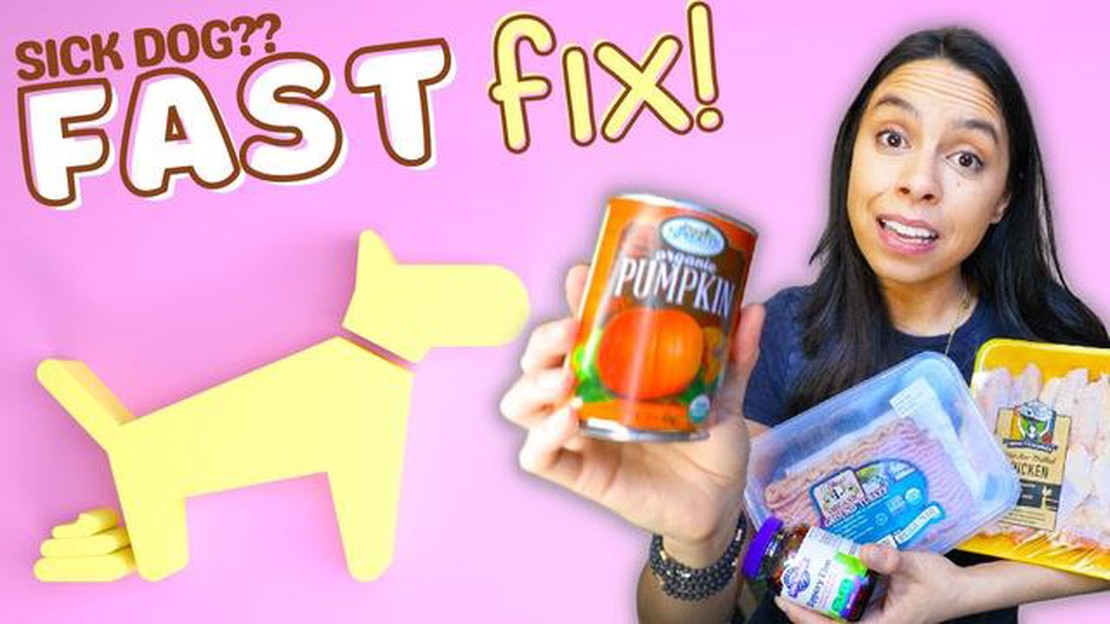How Many Dogs Does The Average Family Have: A Look at the Statistics
How Many Dogs Does The Average Family Have When it comes to pets, dogs are often considered man’s best friend. In many households, they are an …
Read Article
Feeding a puppy is an important responsibility for any pet owner. However, overfeeding can lead to a puppy experiencing loose stool, which can be a cause for concern. In this article, we will explore the causes, prevention, and treatment of puppy loose stool due to overfeeding.
Causes: Overfeeding a puppy can cause their digestive system to become overwhelmed, leading to loose stool. Additionally, feeding a puppy too much rich or fatty food can also contribute to loose stool.
Prevention: The best way to prevent loose stool due to overfeeding is to establish a regular feeding schedule and stick to it. Avoid the temptation to give your puppy too many treats or table scraps, as this can also lead to overfeeding.
Treatment: If your puppy is experiencing loose stool due to overfeeding, it is important to adjust their diet. Gradually reduce the amount of food you are feeding them and switch to a bland diet of boiled chicken and rice. This will give their digestive system a chance to recover.
It is important to note that if your puppy’s loose stool persists or is accompanied by other symptoms such as vomiting or lethargy, it is best to consult a veterinarian for proper diagnosis and treatment.
In conclusion, overfeeding a puppy can lead to loose stool, but with proper prevention and treatment, this condition can be managed. By establishing a regular feeding schedule and being mindful of the type and amount of food you are giving your puppy, you can help maintain their digestive health and overall well-being.
Overfeeding is a common cause of loose stools in puppies. When a puppy is given too much food or is allowed to eat too quickly, it can overwhelm their digestive system and lead to loose stools. Puppies have delicate digestive systems that are still developing, and feeding them excessive amounts can disrupt the balance of beneficial bacteria in their intestines and cause gastrointestinal upset.
Here are some common causes of puppy loose stool overfeeding:
Read Also: Why Does My Dog Sit With His Back To Me: Understanding Your Dog's Behavior
Preventing puppy loose stool overfeeding is essential for maintaining the health and well-being of your puppy. Here are some tips to help prevent overfeeding:
If your puppy is experiencing loose stools due to overfeeding, treatment options may include:
Remember, overfeeding can have negative effects on your puppy’s health, so it’s important to monitor their food intake and make necessary adjustments to prevent loose stools and other digestive issues.
Puppy loose stool can be caused by a variety of factors, including:
If your puppy is experiencing loose stools, it is important to monitor their condition and, if necessary, consult with a veterinarian for proper diagnosis and treatment.
Preventing loose stools in puppies is essential to their overall health and well-being. Here are some preventive measures you can take:
Read Also: Why Does My Dog Touch My Nose With His Nose: Understanding Canine Behavior
By following these preventive measures, you can help ensure that your puppy maintains regular and healthy bowel movements. If you notice persistent loose stools or other signs of digestive upset, consult with your veterinarian for further evaluation and guidance.
When a puppy has loose stool due to overfeeding, it’s important to take immediate action to help them recover. Here are some treatment options:
Remember that prevention is always better than treatment. To avoid overfeeding and loose stool in the first place, it’s important to establish a feeding schedule, measure portions accurately, and pay attention to your puppy’s individual needs and growth rate. This will help ensure their digestive health and overall well-being.
There are several potential causes for loose stools in puppies, including overfeeding. Other possible causes include dietary changes, food intolerance, infections, parasites, and stress.
When puppies are overfed, their digestive system may not be able to handle the excess food, leading to loose stools. Overfeeding can also disrupt the balance of healthy bacteria in the gut, resulting in diarrhea.
To prevent overfeeding, it’s important to establish a feeding schedule and stick to it. Use a recommended puppy food and follow the feeding guidelines based on your puppy’s age and weight. Avoid giving too many treats or table scraps, as these can contribute to overfeeding.
If your puppy has loose stools due to overfeeding, you can try adjusting their diet by feeding smaller, more frequent meals. It’s also important to ensure they have access to clean water at all times. If the loose stools persist or worsen, it’s best to consult a veterinarian for further guidance.
How Many Dogs Does The Average Family Have When it comes to pets, dogs are often considered man’s best friend. In many households, they are an …
Read ArticleHollywood Dog Race Schedule Welcome to Hollywood Dog Race, where the fastest and most agile dogs compete for the ultimate title! Get ready for an …
Read ArticleWhy Do Dogs Wake Up So Easily Have you ever wondered why your dog wakes up so easily? It seems like the slightest sound or movement can rouse them …
Read ArticleMy Dog Has Loose Skin On His Back If you have noticed loose skin on your dog’s back, it is important to understand the possible causes and remedies …
Read ArticleHow Old Is Bluey Bluey is a popular animated television series that has captured the hearts of kids and adults alike. The show, produced by the …
Read ArticleHachiko 1951 ? Brazil Hachiko, the beloved Akita dog, is known worldwide for his unmatched loyalty and devotion. But did you know that there is a …
Read Article